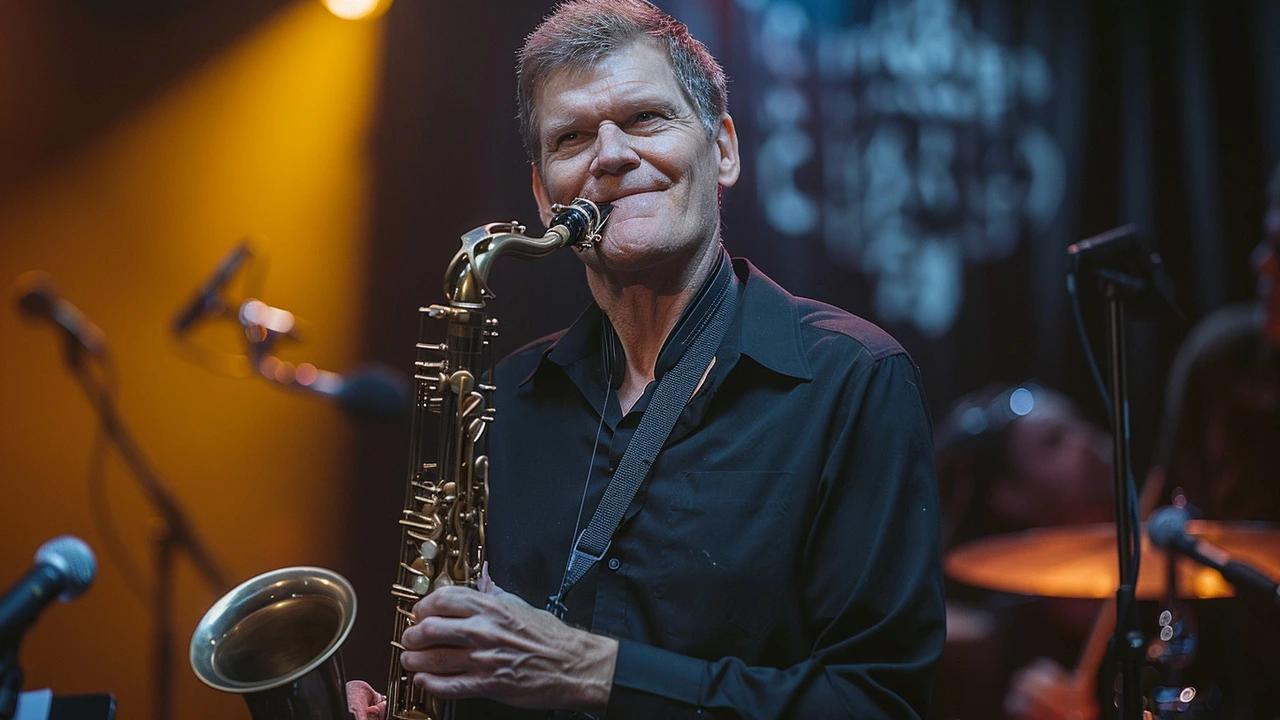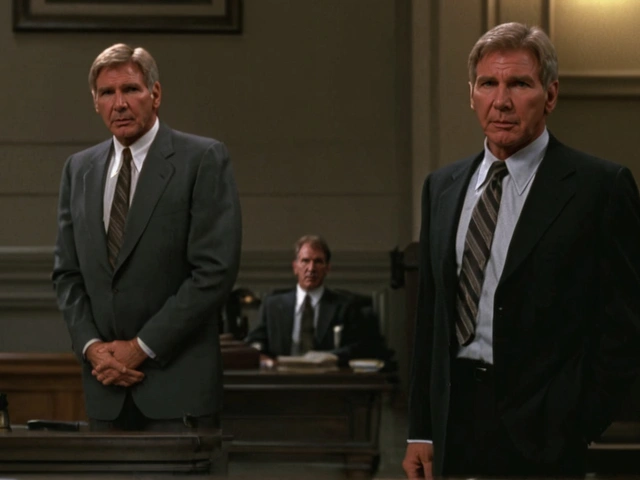On a quiet Sunday, the world of music dimmed slightly as the news of David Sanborn's passing spread. Sanborn, who had just turned 78, left behind a legacy that is deeply embedded in the roots of contemporary pop, jazz, and R&B music. His death, caused by complications from prostate cancer, marked the end of an era for his fans and fellow musicians.
David Sanborn was not just a musician; he was a revolutionary artist who reintroduced the saxophone's vibrant tones to rock 'n' roll. His career, which spanned over five decades, was punctuated by collaborations with some of the biggest names in the music industry, including David Bowie, Stevie Wonder, and The Rolling Stones. Each performance and recording told a story of mastery and passion, which captivated audiences worldwide.
Born in Tampa, Florida, and raised in Missouri, Sanborn's relationship with the saxophone began under challenging circumstances. At the tender age of three, he was struck by polio, and it was during his recovery that he first encountered the saxophone. It was recommended as a method of strengthening his lungs. This instrument, introduced as a therapeutic tool, transformed into his voice, his career, and ultimately, his life's work. He pursued formal education in music at prestigious institutions such as Northwestern University and the University of Iowa.
Sanborn's professional journey began in earnest when he joined the Paul Butterfield Blues Band. His unique sound was showcased at the legendary Woodstock festival, setting the stage for a career that would be as impactful as it was illustrious. His stint with the band also marked the beginning of a series of collaborations that would define his career and influence on modern music.
Perhaps one of Sanborn's most memorable contributions was his iconic solo on David Bowie's 'Young Americans'. This piece not only highlighted his skill but also underscored his ability to blend seamlessly with different musical styles. His work on Stevie Wonder’s 'Talking Book' album further cemented his position as a versatile and sought-after musician.
In 1975, Sanborn released his debut solo album 'Taking Off', which was just the beginning of a successful solo career. Over the years, he bagged six Grammy Awards, starting with his first in 1981. His last major public acknowledgment came just a few months before his death, a lifetime achievement award in jazz, awarded in St. Louis in March 2024. It was a fitting accolade for a man who had dedicated his life to mastering his craft and pushing the boundaries of music.
Even outside the recording studio and off stage, Sanborn was known for his kindness and his dedication to emerging musicians. He frequently engaged in educational seminars and guest lectures, always eager to share his knowledge and experiences. His advice and mentorship have shaped the careers of countless young artists in the jazz and broader music community.
Sanborn's influence extended beyond individual collaborations. He left an indelible mark on the saxophone’s role in popular music. His unique style, a blend of raw emotional power and intricate technique, helped bring the saxophone back into the limelight in rock and pop music, influencing many who came after him.
As we reflect on his prodigious contribution to music, David Sanborn's legacy is not just in the notes he played but in the hearts he touched and the musicians he inspired. He was not only a pillar of the jazz community but a bridge that connected diverse genres and generations of music lovers. While the music world mourns the loss of a great icon, his melodies will forever remain a testament to a life well-lived and a career that truly made a difference.







Angela Arribas
Spelling snafus happen even in professional write‑ups; "saxaphonist" popped up somewhere, not ideal. :)
Sienna Ficken
So Sanborn’s sax could apparently do everything from rocking Woodstock to soothing a late‑night jazz bar-no big deal, right? He managed to make the instrument sound like a vocal soloist, a lead guitar, and even a subtle background texture all at once. It's almost as if he was trying to prove that the sax could outshine every other instrument in the room. Whatever the hype, his work still gets cited in music school curricula across the globe. 🎷
Zac Death
David Sanborn’s career is a masterclass in how a single instrument can shape the sound of an entire generation.
From his early days in the Paul Butterfield Blues Band to his iconic solo work, he proved that the saxophone could be both soulful and edgy.
His solo on Bowie’s “Young Americans” still serves as a textbook example for aspiring players learning phrasing and tone.
He bridged the gap between jazz sophistication and pop accessibility, making complex improvisation feel natural to mainstream ears.
The fact that he won six Grammys underscores how his peers recognized his technical prowess and artistic vision.
Yet beyond awards, Sanborn’s real legacy lives in the countless musicians he mentored in workshops and classrooms.
He never shied away from collaborating with rock legends, proving that genre boundaries are meant to be crossed.
His influence can be heard in modern R&B tracks that lean heavily on sax riffs for emotional depth.
Even his early albums, like “Taking Off,” contain moments that feel ahead of their time, foreshadowing the smooth jazz wave.
Fans still request his live recordings because his tone remains warm, expressive, and unmistakably his own.
The way he used breath control, a skill honed after his polio recovery, became a staple teaching point for wind players.
He was also known for his humility, often crediting the musicians around him rather than demanding the spotlight.
Sanborn’s dedication to education helped keep the saxophone relevant for younger generations who might otherwise ignore it.
As the music industry continues to evolve, his recordings serve as a reminder that authenticity beats trends every time.
In short, David Sanborn didn’t just play the saxophone; he elevated it to a cultural force that will echo for decades.
Lizzie Fournier
I grew up listening to his solo on "Young Americans"-it taught me how a sax can sing without words. His emphasis on phrasing is something every budding player should study. If you ever get the chance to attend one of his masterclasses, grab it; his anecdotes are pure gold.
JAN SAE
Wow, really, the article, while informative, could have benefited, perhaps, from a tighter focus, don’t you think?
Steve Dunkerley
The harmonic interplay that Sanborn employed, particularly his use of extended tertian voicings, set a precedent in post‑bop fusion contexts. Moreover, his articulatory precision contributed to a timbral palette that modern saxophonists still emulate.
Jasmine Hinds
Sanborn proved you can keep the sax fresh, keep pushing limits 😎.
Madison Neal
His workshops were legendary, and the way he broke down complex improvisational concepts into digestible segments made a huge difference for many of us.
John Crulz
Sanborn’s collaborations spanned rock, pop, and jazz, and he adapted his tone for each genre while preserving his signature sound.
Anita Drake
His ability to bridge cultural gaps shows how music can transcend borders, an essential lesson for musicians everywhere.
Eduardo Lopez
David Sanborn was nothing short of a saxophone deity, elevating the instrument to mythic status for a generation of listeners.
Nancy Perez de Lezama
While his achievements are impressive, some feel his later work lacked the spark of his early years.
Matt Heitz
Sanborn’s unmistakable American sound reminded us that true jazz roots are homegrown, not borrowed from abroad.
Susan Mark
He also championed domestic talent, giving platforms to countless local artists.
Jason Jennings
His influence is overrated; many think every sax player owes him a debt that’s not really deserved.
Diego Vargas
Honestly his early albums were better, the later stuff was just filler and kinda meh.
Alex Lee
He was just a hype machine, nothing more.